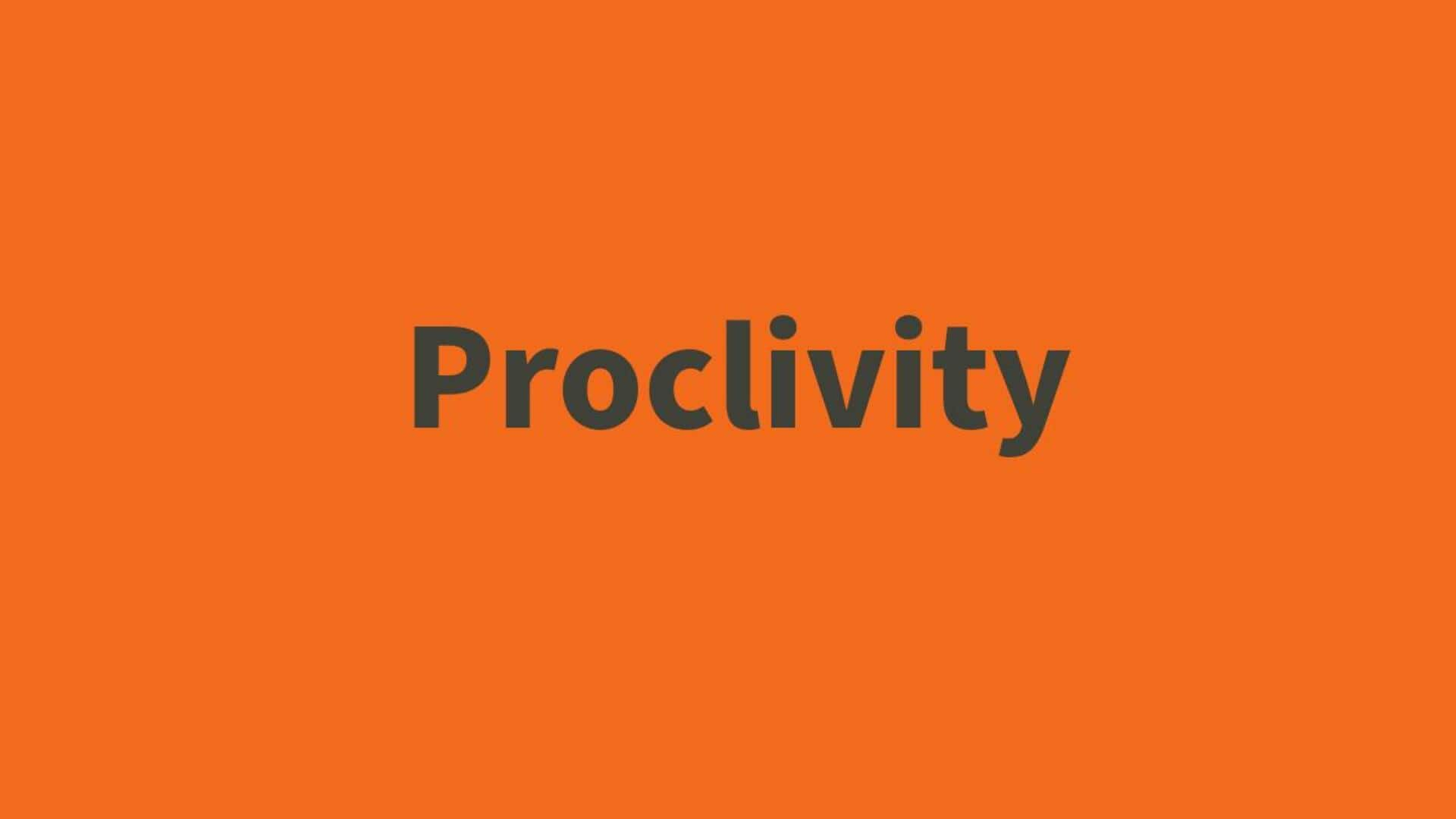
Word of the Day: Proclivity
What's the story
The word "proclivity" is a noun that refers to a natural inclination or tendency toward a particular behavior, habit, or activity.
It is often used to describe innate preferences or predispositions, whether positive or negative.
For example, someone might have a "proclivity" for artistic expression or a tendency toward overthinking challenging situations.
Origins
The origin and meaning of 'proclivity'
"Proclivity" originates from the Latin word proclivitas, meaning "a slope or inclination."
It combines the prefix pro- (forward) with clivus (slope), literally suggesting a leaning or slant.
First appearing in English during the 15th century, the term has retained its metaphorical sense of an inclination toward certain behaviors or interests.
Synonyms
Synonyms for 'proclivity'
Synonyms for "proclivity" include words like inclination, leaning, predisposition, affinity, tendency, propensity, aptitude, and penchant.
These terms convey a strong instinct or liking for something, reflecting natural tendencies or preferences.
For example, a "proclivity" for adventure could also be described as a penchant for exploring the unknown or a propensity for taking risks, highlighting innate inclinations in different situations.
Usage
Sentence usage
There are several examples of usage of "proclivity" in daily conversation.
A few of them are: "Her 'proclivity' for problem-solving made her an excellent leader."
Another example could be, "He has a 'proclivity' for procrastination, which often hinders his productivity."
The term helps add depth and precision to describe recurring behaviors, tendencies, or habits effectively.
Clarity
Why incorporate 'proclivity'
Incorporating the word "proclivity" into your vocabulary helps you describe natural tendencies or habits in a clear and precise way.
It's a versatile term that can be used in everyday conversations or formal writing.
Whether talking about strengths or weaknesses, "proclivity" adds depth to your language and helps you express ideas more effectively.